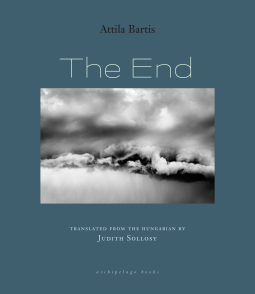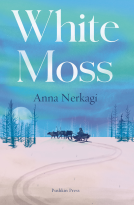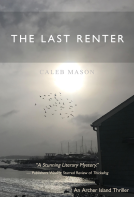
The End
by Attila Bartis
This title was previously available on NetGalley and is now archived.
Send NetGalley books directly to your Kindle or Kindle app
1
To read on a Kindle or Kindle app, please add kindle@netgalley.com as an approved email address to receive files in your Amazon account. Click here for step-by-step instructions.
2
Also find your Kindle email address within your Amazon account, and enter it here.
Pub Date 22 Aug 2023 | Archive Date 19 Jul 2023
Talking about this book? Use #TheEnd #NetGalley. More hashtag tips!
Description
Nothing approximates death as closely as photography.
Unspooling like a roll of film, The End captures in frames of language the faces and places of András’ memory, which together form a fever-dream collage of an artist’s psyche.
In a small town in communist Hungary, András Szabad’s childhood comes to an abrupt end with his father’s return from prison and the death of his loving mother. In search of new beginnings, András moves with his father to Budapest, where he discovers a passion for photography, for uncovering the invisible through the visible, and for fixing matter and memory so as to ward them against the inevitability of time.
An unorthodox first encounter brings András together with Éva, and soon they become entangled in a psychosexual relationship of consuming passion, but also bitterness and resentment.
With vibrant precision and fluid dialogue, Attila Bartis blends a sprawling family saga with 20th-century European history and offers an unflinchingly lucid yet boundlessly compassionate account of psychological devastation under authoritarianism.
Advance Praise
“A vivid and highly personal Künstlerroman about damaged lives deeply steeped in struggle, but nevertheless still occasionally shot through with glimmers of joy. Intensely human, painfully honest, and deftly written.”
--Brian Evenson, author of Song for the Unraveling of the World, winner of the Shirley Jackson Award and finalist for the Ray Bradbury Prize
Available Editions
| EDITION | Other Format |
| ISBN | 9781953861429 |
| PRICE | US$27.00 (USD) |
| PAGES | 680 |
Available on NetGalley
Average rating from 3 members
Featured Reviews
The End is Judith Sollosy's translation of Attila Bartis's A vége, forthcoming from Archipelago's fall catalogue. This one grew on me. The story is set in Communist-era Hungary and is just as much about the 20th-century Hungarian experience as it is about the main character. Photography is a central theme, surfacing in a number of ways, starting with the short chapters that feel like snapshots. Despite the assemblage of short chapters, this doesn't feel scattered like fragmented storytelling can often be. I think it's because the chapters are fully developed and shaped in their own right, despite their brevity. The total work, though, is a hefty 675 pages which may be a bit long for the material without more of a forward thrust. Readers interested in historical fiction that bends the narrative form may be particularly keen on this one. Thanks to Archipelago Books for providing a review copy in advance of publication.





